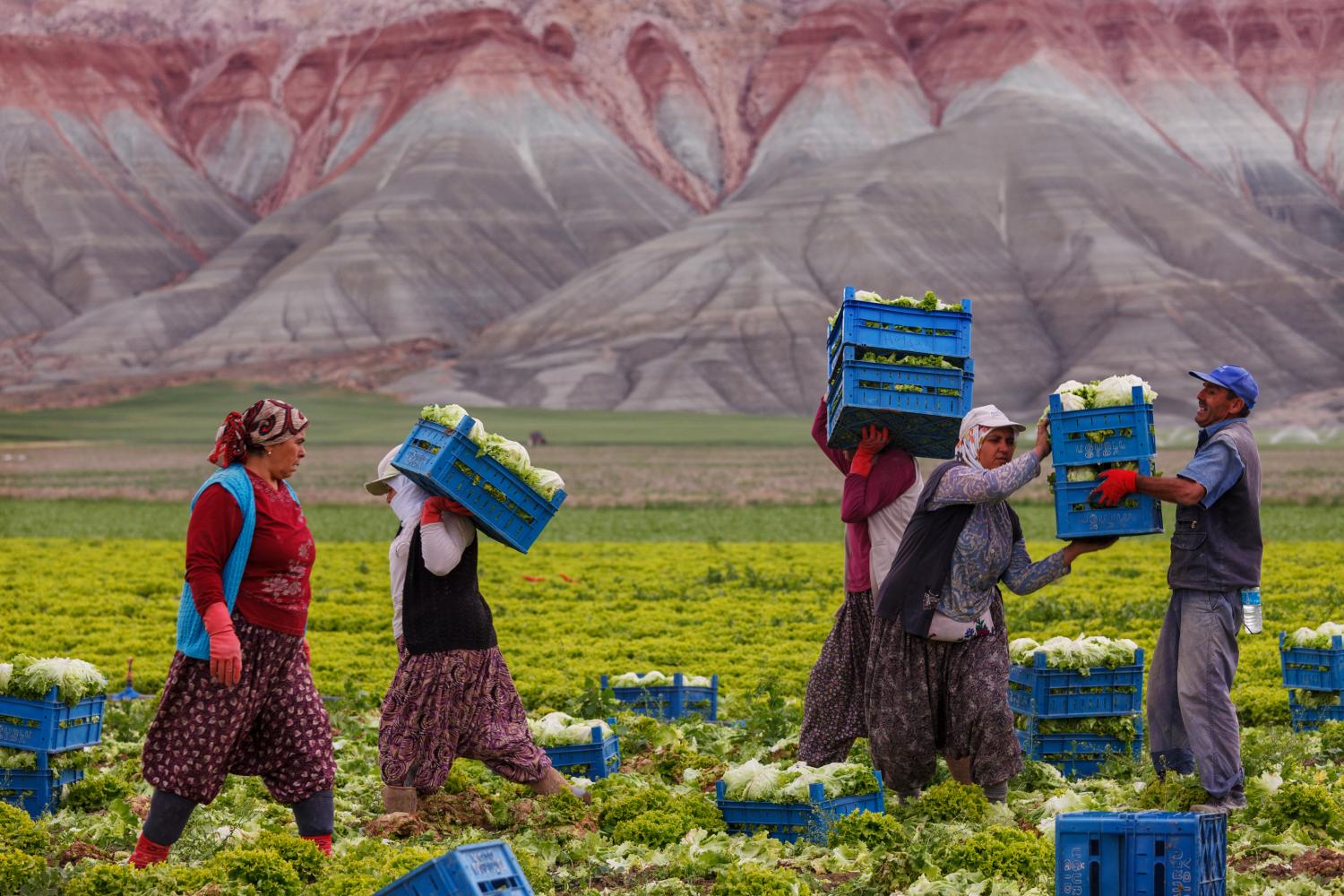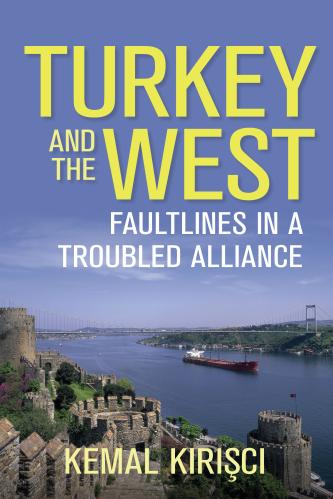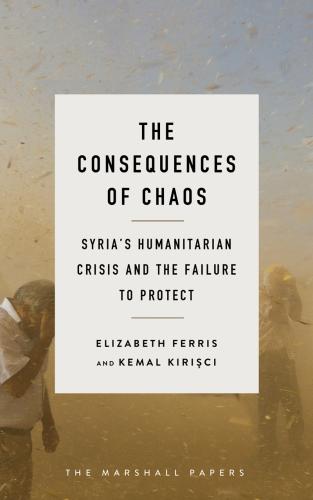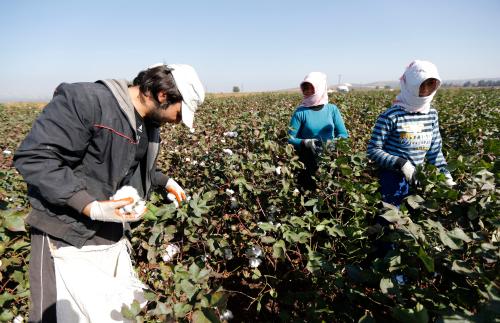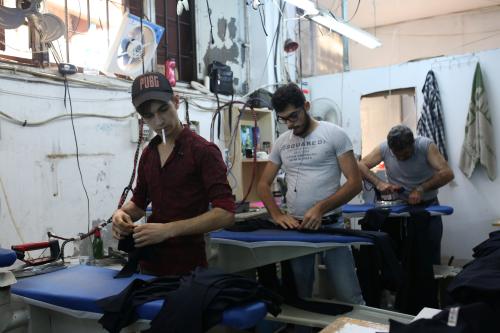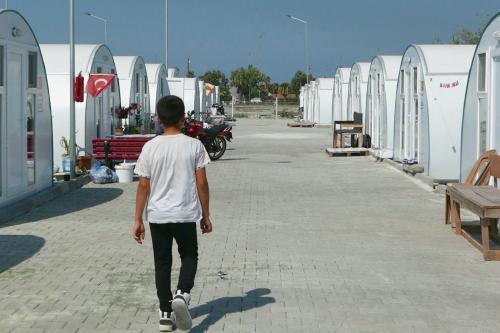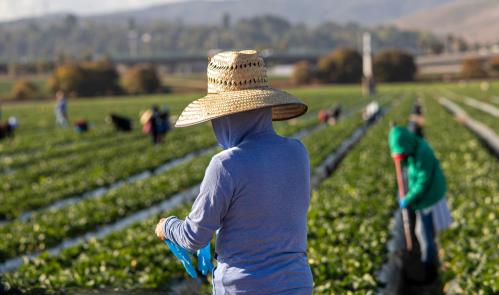Brookings TÜSİAD Senior Fellow Kemal Kirişci describes how and why trade concessions should be used to enable Syrian refugees to have better access to employment opportunities in Turkey. This piece is part of a series on refugees in Turkey made possible by support from the Tent Partnership for Refugees. The views expressed are those of its author and do not represent the views of Tent, their officers, or employees.
Executive Summary
The Syrian crisis is approaching its ninth year. The conflict has taken the lives of over 500,000 people and forced over 7 million more to flee the country. Of those displaced abroad, more than 3.6 million have sought refuge in Turkey, which now hosts more refugees than any other country in the world. At a time when traditional durable solutions, either through resettlement or a voluntary, sustainable, and dignified return do not look viable, leaders at all levels of government, civil society, and international agencies are grappling with how to integrate these newcomers into society broadly and the labor market specifically.
Although the Turkish government adopted legislation in 2016 designed to facilitate access to work permits, so far less than 2% of the 2.2 million Syrian refugees of working age (15-64) are formally employed. The Turkish economy presents a unique structural problem in that more than one-third of Turkish employment is estimated to be informal. The entry of more than a million Syrian refugees, acting as competition for local workers and thus depressing wages, has exacerbated social tensions and even violence, adding urgency to the task of finding a solution.
Thus far, most approaches to supporting refugees have focused on enhancing refugees’ employability, with limited success. Yet little attention has been paid to creating the economic conditions necessary for them to be employed. An innovative way to achieve sustainable self-reliance for refugees in Turkey would be for the European Union to offer Turkey trade concessions conditional to formal employment of Syrians. Versions of this policy idea have already received backing in various high-level conferences, such as the London Conference and the UN Summit on Refugees and Migrants in February and September 2016, and endorsement in the UN Global Compact on Refugees adopted in December 2018.
A model for this approach already exists in the 2016 EUJordan Compact, in which the EU agreed to allow greater access to its market for goods produced by Jordanian companies employing refugees. This report argues that a version of this compact should be applied to the Turkish case and offers a set of political and regulatory changes that should be adopted by both the EU and Turkey. Where the Jordanian case focused on industrial exports, in this instance the Turkish agricultural sector offers an opportunity both for a significant expansion of exports and for equally significant formal employment opportunities for Syrian refugees. This move would build on the current functional cooperation between the EU and Turkey, exemplified by the Facility for Refugees in Turkey (FRIT) that has emerged since the 2015-16 European migration crisis.
The report is divided into three sections. The first presents a discussion of the current situation facing Syrian refugees in Turkey and the efforts made to provide better employment opportunities for them. The subsequent section assesses the challenges and opportunities with respect to accessing employment, with an emphasis on the agricultural sector. The final section presents a set of policy recommendations developed through interviews and discussions with academics, civil society representatives, Turkish national and local government officials, and representatives of international agencies, as well as officials from the European Commission and Parliament. The interviews and discussions were conducted during field research in Ankara, Gaziantep, Istanbul, and Şanlıurfa in February, April, and June 2019, with consultations held in Brussels in July 2019.

